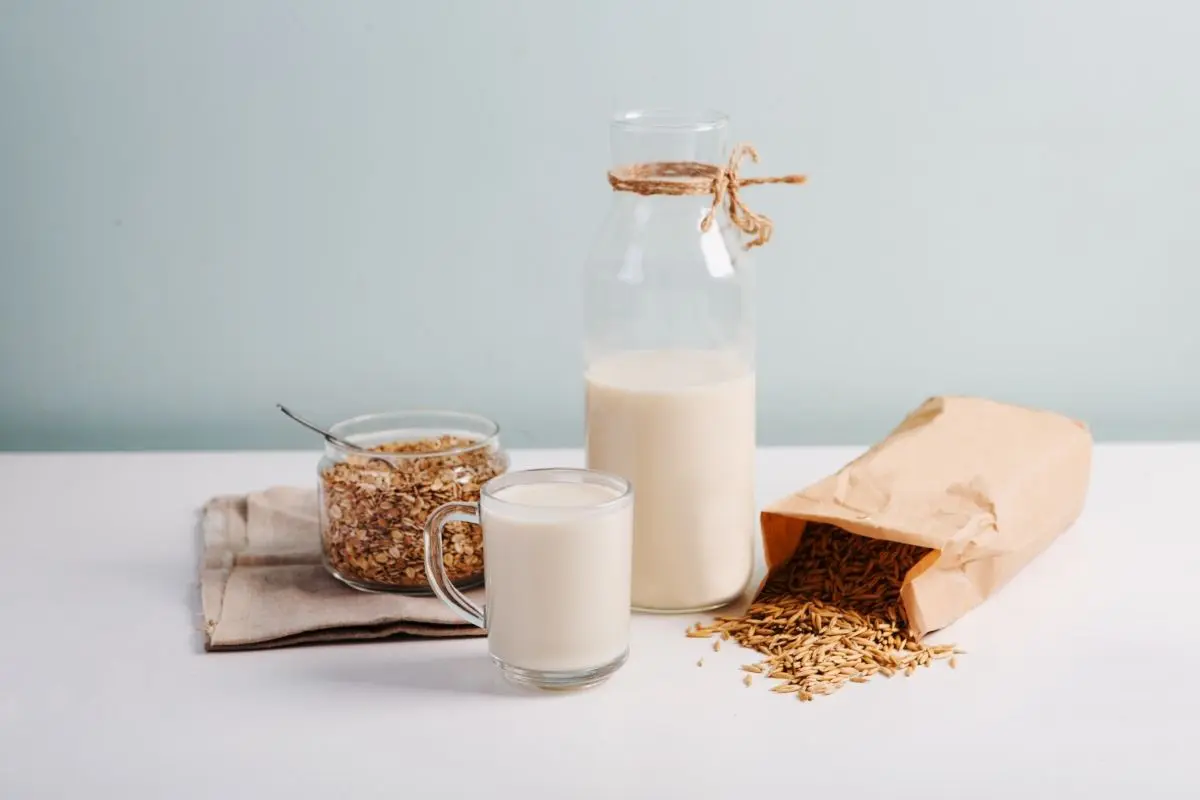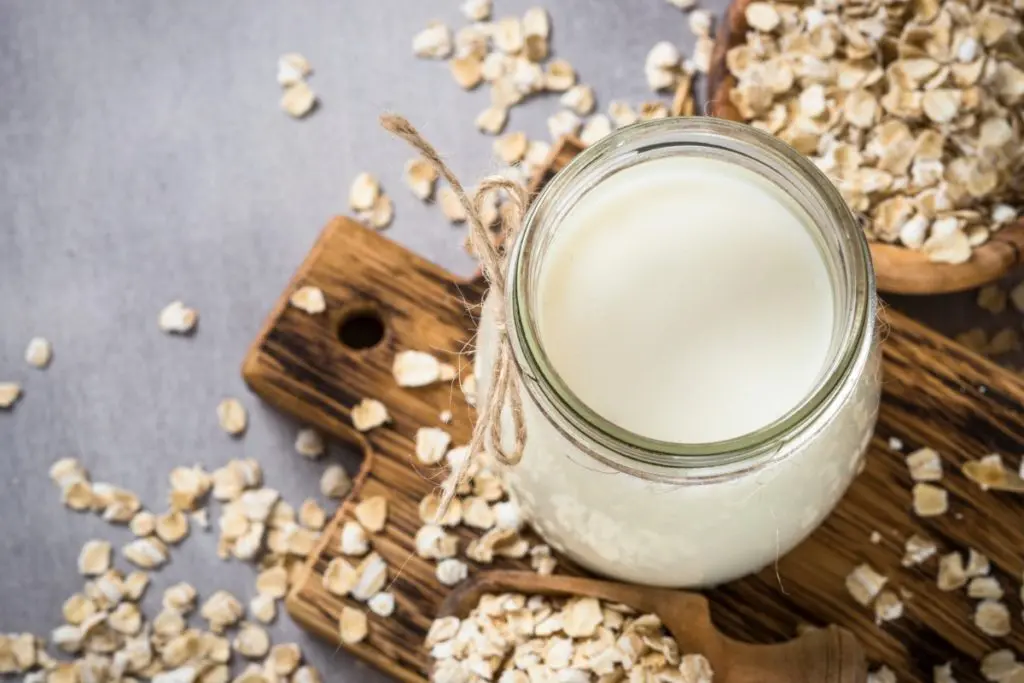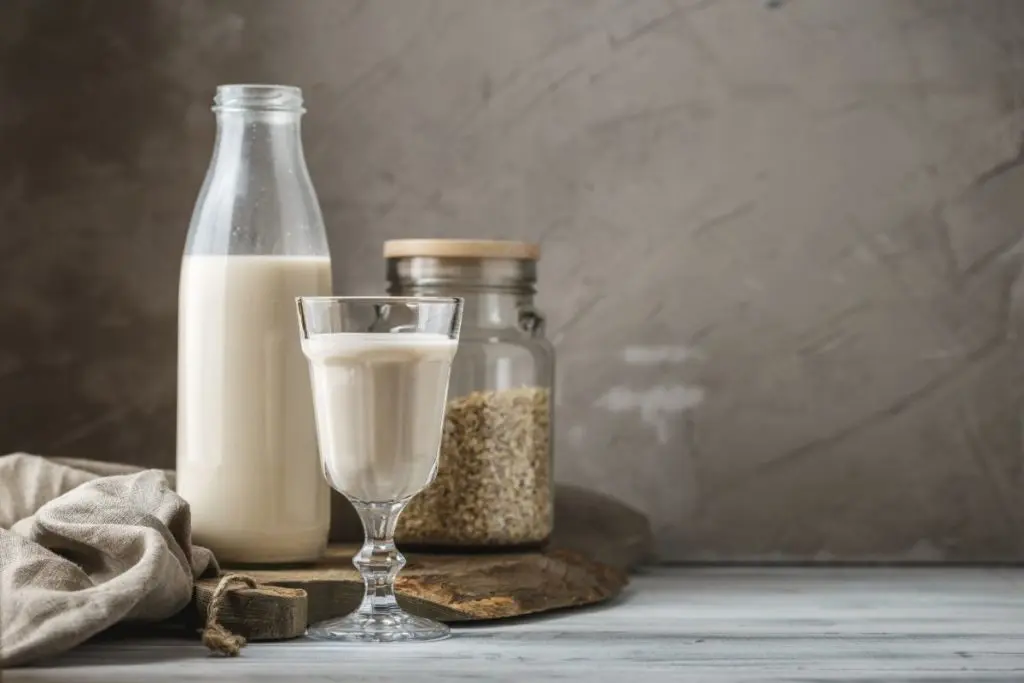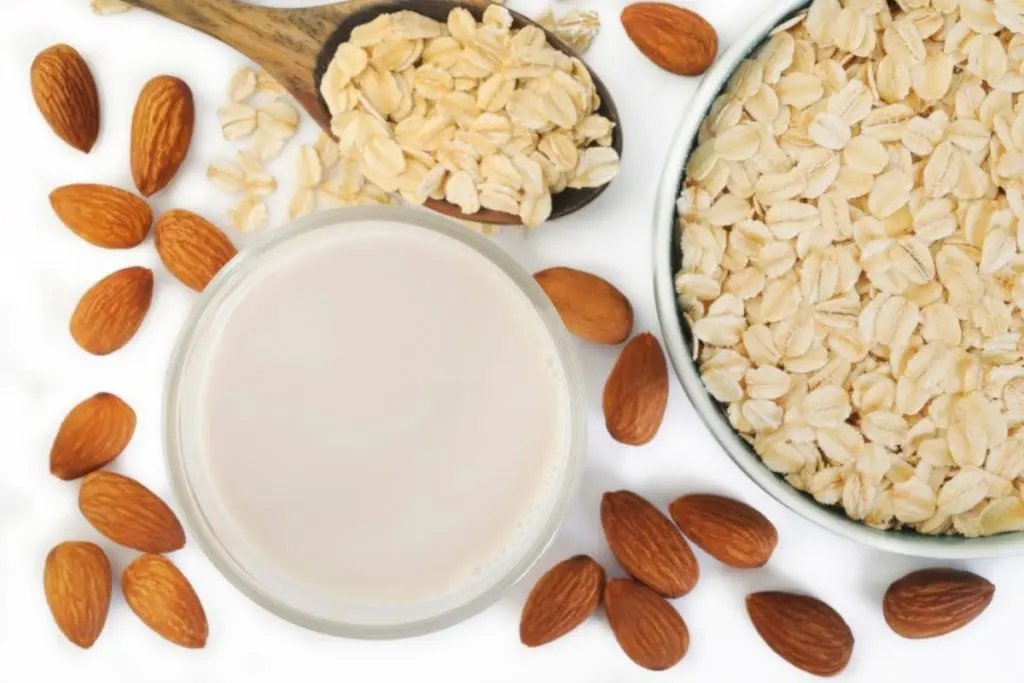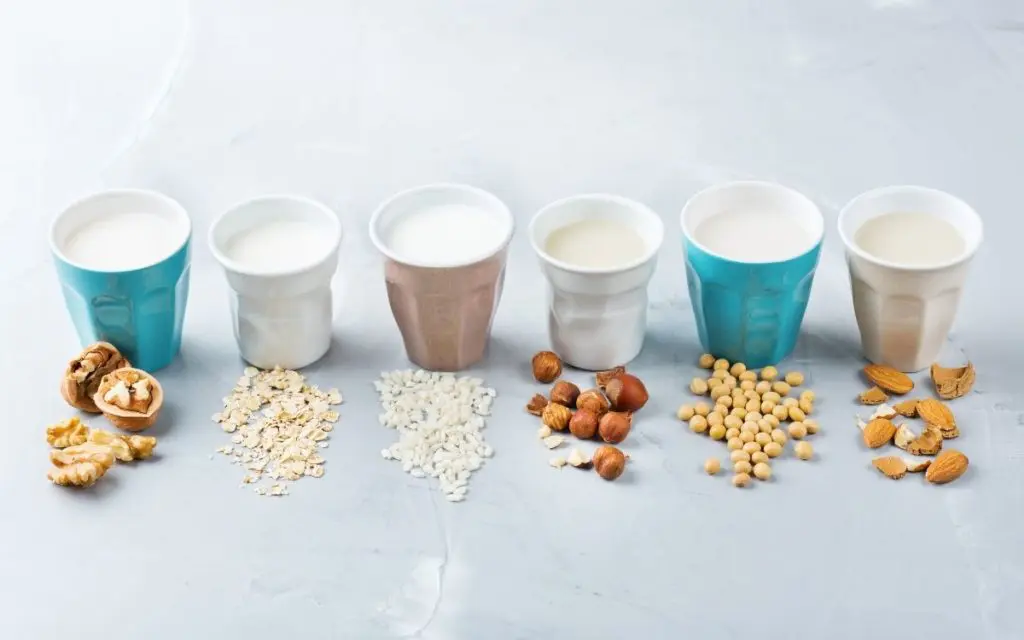You’ve probably seen oat milk lining shelves in the refrigerated section of the grocery store or heard people talk about it. In recent years, oat milk has risen in popularity and, it shows no signs of slowing down. People regularly remark about the creamy texture of oat milk compared to other non-dairy milk alternatives, claiming its taste nearly resembles that of cow’s milk. The consistency and flavor are only two of the many reasons why an increasing number of people are gravitating toward oat milk.
Whether you’ve been drinking oat milk for a while or are new to the beverage, there are a lot of surprising facts about oat milk that just may leave you in awe. Here, we’ve compiled everything that you need to know about oat milk. By the time you finish reading this article, you’ll be an oat milk expert.
What are the benefits of oat milk? Are there any downsides? See our discussion about the pros and cons here.
What Is Oat Milk?
First, let’s take a look at exactly what oat milk is. As you may have already guessed, oat milk comes from steel-cut or whole grain oats that are soaked in water, blended, and then strained. The liquid that is pressed from the oats in this process is the base of the product you find in supermarkets. Sweeteners and other fortifying ingredients are added to this liquid to turn it into the oat milk you’re likely familiar with.
Oats naturally absorb more water than nuts. Thus, giving them the ability to produce a creamier final product compared to almond or soy milk. Many of the nutrients that are present in oats are also pressed through into the oat milk.
How Is Oat Milk Made?
Aforementioned, oat milk is made from soaking oats in water then pressing liquid from them that becomes the base for oat milk products. Oats vary slightly from other non-dairy milks in their process. Most nut milks ask that you strain the liquid through a standard nut milk net. However, the spaces in this net are too large, and pieces of oats will slip through. Oat milk requires a filtering net with smaller holes. This is especially important if you are making oat milk at home. Try using a clean t-shirt or cheesecloth instead of a standard nut milk filtering net.
Cost of Production
Oat milk tends to be on the pricier side when compared against other non-dairy milks. An oat milk price comparison often sees it higher than specialty dairy milk. A gallon can cost anywhere from $4-$5, depending on the brand and what store you’re shopping at. However, oat milk also has a longer shelf life than many of its competitors, especially if you buy it from the pantry section and store it properly. Depending on how much oat milk you’re drinking, the cost might be worth it.
Product Variety
Like most non-dairy milk alternatives, oat milk manufacturers have transitioned to making other kinds of products that are based on oat milk. Oat milk and other oat milk products can take roughly 14 hours to make at a standard manufacturer from start to finish. Because oat milk has a consistency similar to that of cow’s milk, oat milk-based products tend to have a thicker and creamier texture. The good news is that you too can easily make oat milk products at home. Anything from yogurt to ice cream is within your grasp. You just need a few extra ingredients.
What Are Different Kinds of Oat Milk Products?

1
Yogurt
Oat milk yogurt is made using the same process as oat milk, but with added flavors, sweeteners, and usually a vegan yogurt starter. It’s easy to make at home.
2
Ice Cream
Oat milk ice cream is the closest vegan ice cream you may get to traditional ice cream in terms of texture and consistency. You have the freedom of adding any flavors that pique your taste buds. Most products only need a few ingredients, including oat milk, salt, sweetener, and added flavors.
3
Cheese
Finally, oat milk cheese is another popular product that stems from oat milk. You can find oat milk mozzarella, white cheese, cheddar, and more. When compared against almond milk cheese, coconut milk cheese, and others, oat milk cheese comes first for usability and texture. Many vegan cheese options don’t melt well or have a rubbery texture. Oat milk cheese can closely mimic cow’s cheese.
Is Oat Milk Healthy?
If you’re drinking any vegan milk, you should make sure that it’s fortified to ensure your body is getting the nutrients necessary. These products are usually fortified with vitamins A, D, iron, calcium, fiber, and potassium. Oats naturally contain more fiber than nuts, so they have a higher amount of carbohydrates, but they have no saturated fat. There is no cholesterol in oat milk, and it can be relatively high in protein compared to other non-dairy milks. Here are the nutrition facts for a one-cup serving of oat milk.
| Nutritional Facts of Average Cup of Oat Milk | |
| Calories | 130g |
| Carbs | 15g |
| Fat | 2.5g |
| Saturated Fats | 0g |
| Fiber | 2g |
| Protein | 4g |
| Calcium | 35% of Recommended Daily Amount |
| Vitamin D | 25% of Recommended Daily Amount |
You might be wondering if you should drink organic or non-organic oat milk. The truth is, most oat milk brands likely do contain pesticides. Among these pesticides can be carcinogens, hormone disruptors, and other toxins. If you want to be extra sure you’re only drinking oat milk free from these things, make sure you research oat milk brands before making a purchase and stick to organic oat milk whenever possible.
While there are several health benefits of drinking oat milk, there are some oat milk dangers to be aware of.
First and foremost, oat milk is not always gluten free. Some brands have oat milk that does contain gluten, so it’s important to research which brands don’t have gluten and read labels carefully before purchasing.
Oat milk also contains far more sugar than other non-dairy milks. These sugars are natural and added, but unsweetened oat milk will be the best option if you want to avoid these excess calories.
How Do I Use Oat Milk?
You can use oat milk just like you would use cow’s milk. Use it as an ingredient in your smoothies or a bowl of cereal. One of the characteristics of oat milk that truly stands out is its ability to froth like cow’s milk. This makes it ideal for lattes and other espresso beverages. Due to its unique flavor and creamy texture, many people also drink it straight from a glass.
Oat milk is a versatile product- don’t be afraid to get creative!
Did You Know? Facts about Oat Milk
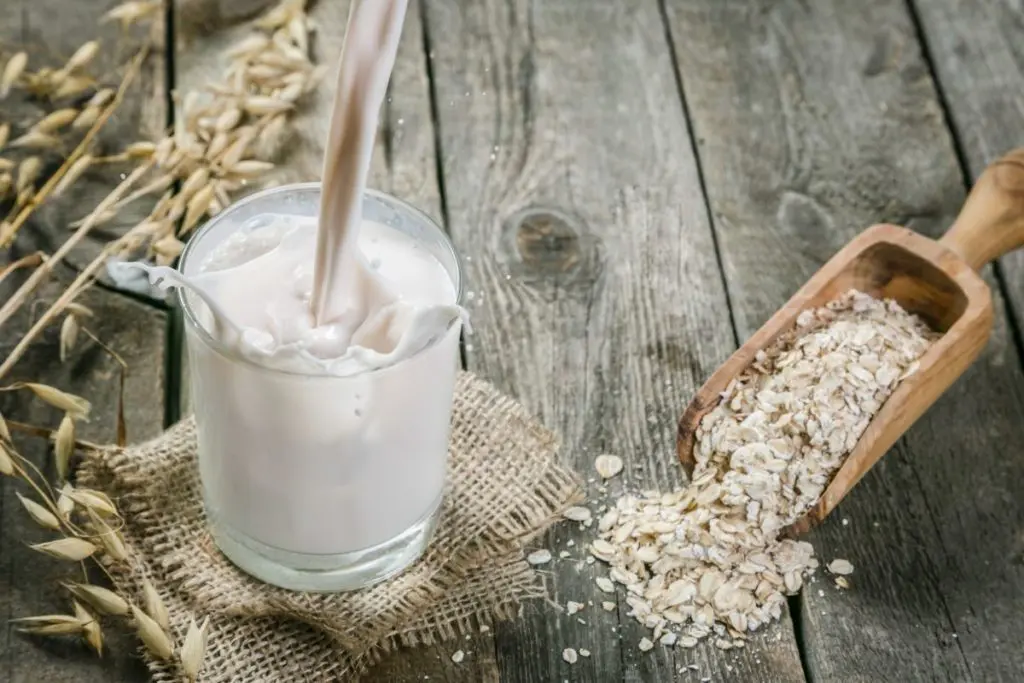
1
The more fortified oat milk is, the healthier it is. Fortified oat milk introduces several vitamins and minerals to oat milk that are not naturally found in oats. This makes it a good source of things like calcium, vitamin B12, vitamin D, and more.
2
Oat milk is loaded with beta-glucans. Beta-glucans are a kind of fiber that is good at maintaining levels of bad cholesterol. Oats are exceptionally high in these.
3
It’s likely the most eco-friendly non-dairy milk. The process of making oat milk is less demanding than almonds, for example. It requires fewer resources, time, and space, therefore, having less negative impact on the environment.
4
Oat milk generally doesn’t have any allergens. The only allergen to be wary of when it comes to oat milk is gluten, but not all brands contain it.
5
There can be a lot of oil in oat milk. Oil is the additive to oat milk that makes it rich and frothy. Oil contains both good and bad fats, but it’s also a good source of vitamin E. Rapeseed oil, the parent oil or canola oil, is usually high in erucic acid, which has been negatively linked to heart problems. There is no one type of oil found in oat milk, so you might be getting either one when drinking.
Oat Milk FAQ
Click on each question to expand the answer.
Final Thoughts
Oat milk’s rise in popularity was no surprise. This frothy, smooth, and delicious non-dairy milk has made waves when it comes to drinking milk that isn’t from a cow. While there are several health benefits of oat milk, there are also some dangers to be aware of when selecting which style and brand to drink. All in all, oat milk is a great alternative to cow’s milk.
Further Reading
